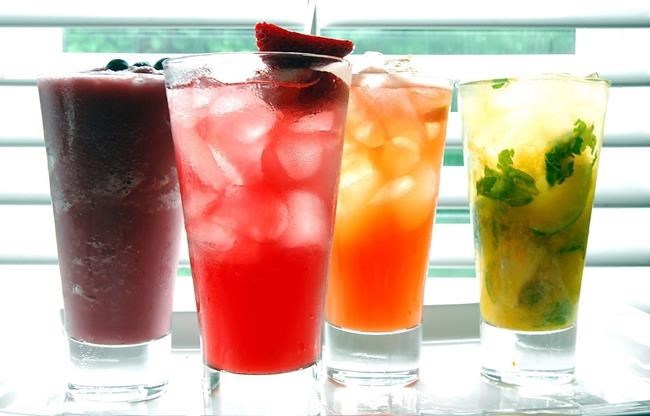As Canadians increasingly look to drink less or not at all, non-alcoholic beverage companies are working hard to meet the rising demand and are sometimes struggling to keep up.
Interest has been brewing for the last couple of years, with an increase in sales during "Dry January" as the concept gains in popularity, says Bob Huitema, who launched the non-alcoholic spirits company Sobrii in 2019.
In just the past few years, he says, the industry has “exploded” with more companies producing non-alcoholic drinks.
Mitch Cobb, the co-founder and CEO of Libra Non-Alcoholic Craft Beer, launched a single non-alcoholic beer in October 2020 at Upstreet Craft Brewing in Charlottetown. Since then, increased demand has led to him expanding non-alcoholic offerings and recently spinning Libra off into a separate company.
“It has absolutely started to take off,” he said.
Cobb also noted that it’s becoming easier to sell to restaurants and grocers, which were once skeptical that customers would buy the drinks.
“As soon as we got the shelf space, sales would take off."
But that increased demand has led to some hiccups along the way.
On a few occasions, Cobb said, demand was a lot higher than what he expected, leading to short-term gaps where he couldn’t fulfil all of the orders.
While he's learned from those experiences and become better at predicting demand, he said his company still had a hard time keeping up with demand in January.
Along with the increase in producers, there are also companies launching that import and distribute non-alcoholic drinks to retailers, restaurants and bars.
Clearsips launched last summer as a distributor of Canadian and international non-alcoholic drinks, including wines, beers and spirits. Co-founder David Thompson had already been running a wine agency for more than 20 years. A non-drinker himself, he decided to use his industry expertise to connect producers with retailers and restaurants.
Sansorium, another distributor, launched in September 2021 and imports non-alcoholic beverages to Canada from other countries where the non-alcoholic drinks industry is more developed.
Fiona Hepher, the company's creative director and co-founder, said demand is steadily increasing as more people try non-alcoholic drinks and have their assumptions about them dashed.
Like Cobb, she’s had a few of her own faulty assumptions about demand, seeing some of her bestselling wines sell out — and since they’re imported, they take longer torestock.
It can be frustrating, but it’s a good sign for the industry, said Hepher.
Though growth may seem rapid, Sobrii's Huitema thinks Canada’s non-alcoholic drink industry isn’t moving as fast as it is in other countries.
“I would say the U.K. is still years ahead of where we are now, in terms of retail adoption, in terms of retail penetration, and in terms of consumer acceptance and consumer demand in the retail space.”
He noted that smaller, independent and specialty stores are much more likely to carry a wide array of non-alcoholic drinks, especially the newer, more innovative brands. Over the next couple of years, retail options will have to expand in a more mainstream way, he said.
There’s definitely lots of room to grow, with many people barely even aware of what’s out there, said Huitema.
Dry January, where participants give up alcohol for the first month of the year,has helped introduce some Canadian consumers to non-alcoholic drinks every year, but those in the industry say this time around felt different.
According to payments company Square, sales of mocktails hit an all-time high in the first half of January 2023, with 123 per cent growth year over year.
Huitema thinks the new guidance on low-risk alcohol consumption released in January, which recommended drinking dramatically less than previous advice, prodded many retailers and restaurants to get on board.
Cobb said his sales were up 40 per cent in January compared with a year earlier, and February’s sales are also up so far.
Thompson said in January, Clearsips signed up more than 20 new restaurant clients, a significant bump from single-digit numbers in previous months.
Thompson compares non-alcoholic drinks to vegan alternatives — years ago most restaurants didn’t offer them, but with growing consumer demand and more products available, businesses are starting to find they may have no choice but to offer them.
Hepher sees a twofold business surge happening: a surge in new non-alcoholic drinks companies, but also an uptick in traditional alcohol brands launching non-alcoholic options.
While Thompson expects he will see sales rise in January for the foreseeable future, he thinks consumer demand for non-alcoholic drinks will continue growing every month of the year. And he thinks the next two years in particular will be crucial for the industry as more products launch, some likely meeting with more success than others.
“This is going to be very interesting in the next couple of years,” he said.
This report by The Canadian Press was first published Feb. 19, 2023.
Rosa Saba, The Canadian Press



